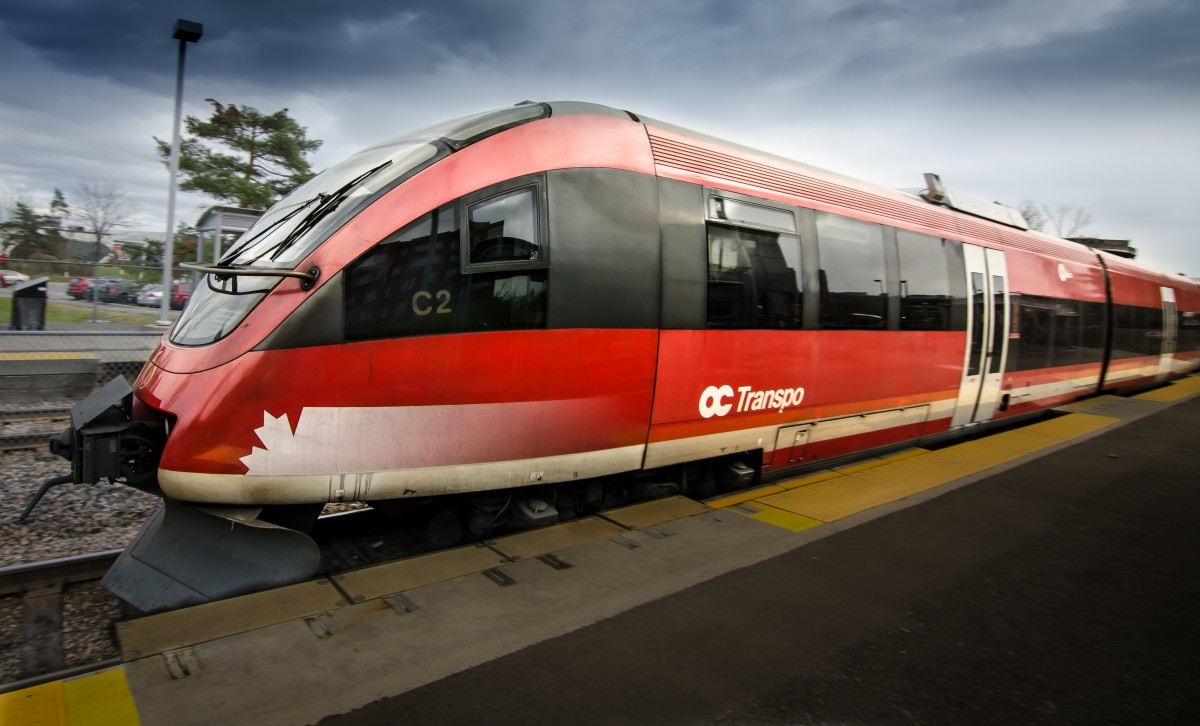
Confederation Line Delayed….Again!
If you’re a commuter in Ottawa who relies on the OC Transpo service to get to and from work, you may want to look away now. We’re afraid we have some bad news for you. The long-promised Confederation Line light rail system is going to miss its deadline yet again. It's now several months overdue, and councillors aren't even able to tell residents when they can finally expect their hugely delayed new transport system.
Until this week, the anticipated date for handover of the line was June 30th. Anyone who lives or works close to the line was already suspicious that they didn't seem close to being in a position to start welcoming millions of passengers, and those suspicions were confirmed to be true when the Rideau Transit Group confirmed that it would be unable to fulfill its pledge. It was initially hoped that the new line would be open to riders by the end of 2018. When that didn't occur, the date slipped back to April 2019, and then to the end of June. Now, RTG has missed their third deadline, and trust in their ability to complete the project is beginning to erode.
The reasons for the latest delay haven't been made public, and it appears RTG have been unable to provide any estimate to the city as to when they can finally expect the work to be completed. In the meantime, it's left the council facing difficult questions regarding what to do with the city's strained and struggling transport network. The last winter was a bad one for those who rely on the bus for transport, with cancellations occurring on a daily basis, and those services which did run badly crowded. Councillor Carol Anne Meehan has gone on record to call the current state of Ottawa's transport system 'a disgrace.'
In an attempt to reduce the irritation of passengers, the council has voted to once again postpone the planned implementation of fare increases on OC Transpo. A proposal was also put forward to reduce the amount passengers are currently paying as a way of apology for the prolonged inconvenience, but the motion was unable to garner sufficient support when put to the vote. The current state of affairs has already cost the city considerable sums of money, with $2.1bn being spent on the new LRT service alone.
While the decision to maintain a price freeze on the cost of transport until the Confederation Line opens is admirable, it does place a further financial strain on the resources of the council. Budgets were drawn up for the year on the basis of the service being up and running, and each month the price of tickets doesn't go up, it creates a shortfall against budget figures. Using the council's own statistics, the loss in revenue works out at $164,000 per month. If the new rail system isn't up and running by September, the city will be missing almost half a million dollars.
While there are reserves which can be used to plug the gap in the meantime, some councillors believe that RTG should be forced to cover the costs. Others are less sure about that as a viable way forward, feeling that filing a lawsuit against the company while they’re still carrying out the required works could complicate the situation further.
Allan Hubley, who sits as the chair of the transport commission, tabled the motion which led to the continued freezing of rail fares. Fellow Councillor Diane Deans then put forward a proposed amendment, which would have seen a cut in the price being charged to customers, and offsetting the cost of that cut against the amount due to be paid to RTG upon the eventual completion of the work. In a heated debate, Deans expressed the view that customers aren’t getting what they pay for as it currently stands, and given that they’re not receiving a full service, they shouldn’t be expected to pay a full fare. Her proposal received the backing of 25% of the council, but crucially, Hubley was unmoved by it.
It was suggested that a reduction in the amount customers currently pay for transport could cause a loss of as much as $30m to the taxpayer, and wouldn't result in any improvement to the current service. Going further, Hubley felt that incurring costs to the city on that level without any guarantee that RTG could be forced to pay would be 'a gamble' that wasn't worth taking.
Taking a gamble with transport facilities within the city would perhaps be less wise now than at any other point in Ottawa’s history. As of this week, the population of the city is now above one million, meaning Ottawa joins Toronto, Calgary, and Montreal in the seven-figure club. With increased population comes increased strain on transport, and not even the biggest online casino website in the world would support or condone a $30M gamble when the odds are unknown and espeically not smaller online slots and casino websites including RoseSlots.com. The casino may always win when it comes to making money, but every casino game currently available on the internet publishes its odds, and allows players to see them before deciding to place a stake. If the transport situation were a casino game, nobody would play it. Nobody knows what the chances are of a win, and the jackpot prize is breaking even and covering your losses. It would be a hard sell to the public.
Ottawa shouldn't be expected to tolerate another winter like last year's, when transport around the city was so unreliable that the service became almost self-defeating. Although many users rely on bus and transport services to get to work, it should also be remembered that for many vulnerable members of our society – especially the elderly, or those unable to pay for a car – the transport solutions provided by the city are their only means of traveling from one place to another, and engaging with broader society. They're the people who'll suffer worst the longer the status quo continues, and it's for them that RTG must be held to account, and compelled to deliver the completed service as quickly as possible.









